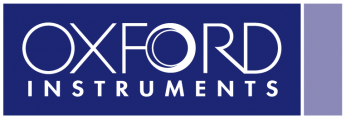06 June 2023
Oxford Instruments NanoScience Announces 2023 Nicholas Kurti Science Prize Winner
Oxford Instruments is delighted to announce that Dr. Samuli Autti, EPSRC Fellow, University of Lancaster, has been selected as the winner of the 2023 Nicholas Kurti Science Prize.
The Award recognises Dr. Autti’s work on macroscopic quantum systems at ultra-low temperatures, leading the way to understanding exotic topological defects, time crystals and their interactions, the decay of quantum turbulence, and the microstructure of unconventional superfluids.
Dr Samuli Autti says “I am grateful and honoured to receive this prize. I would like to point out that experimental physics is teamwork, and much credit goes to the numerous brilliant people I am collaborating with and have been instructed by in the past.”
He goes on to express his pride at being part of the community researching superfluid 3He, stating that “superfluid 3He is possibly the most versatile and influential macroscopic quantum system in the laboratory. It has touching points and conceptual exchange with seemingly distant fields of physics, such as particle physics and cosmology. It is being a part of the community effort to make use of this that I value the most.”
Dr Autti’s research has made significant contributions to the field through experiments conducted at ultra-low temperatures using magnetic cooldown techniques, particularly in the study of superfluid 3He. His work with such experiments has led to seminal discoveries such as the observation of half-quantum vortices, which were theoretically proposed in 1976 and then discovered by Autti in 2016, and his observation of the Kelvin-wave cascade alongside his colleagues in 2020. This research shed light on the much-studied yet elusive quantum turbulence, filling the crucial gap in the theoretical understanding of turbulence.
Matt Martin, Managing Director at Oxford Instruments NanoScience said, “Dr Autti is a very deserving winner of this year's prize and his work is incredibly exciting. It is inspiring to see such innovative work produced in low-temperature physics which could make a genuine difference in the field of quantum technology”.
The objective of the Nicholas Kurti Science Prize is to promote and recognise the novel work of young scientists working in the fields of low temperatures and/or high magnetic fields in Europe.
The 2023 Nicholas Kurti Science Prize selection committee is chaired by Professor George Pickett, Lancaster University and includes Professor Rolf Haug, Universität Hannover, Professor Vladimir Dmitriev, P L Kapitza Institute, Moscow, Professor Dominik Zumbühl, University of Basel and Dr Silviano De Francheshi, Institute for Nanosciences and Cryogenics, Grenoble.
After receiving his PhD in 2017 from Aalto University, Finland, Dr Autti came to Lancaster with a highly-competitive Wihuri Foundation Postdoctoral Fellowship, awarded via the Council of Finnish Foundations. Currently he holds a prestigious 5-year EPSRC Open Fellowship, facilitating his work that focuses on the interfaces between classical and quantum physics on topics covering high-profile research endeavours such as the quest to build a quantum computer. He has also published four first-author Physical Review letters and two first-author Nature Communications on research covering quantum time crystals and bound fermions in the zero-temperature limit. Beyond his academic research, as a member of the Young Academy, Dr Autti also regularly co-writes policy statements on science, education and industrial legislation for the Finnish government.
The Nicholas Kurti Science Prize
Oxford Instruments is aware that there is a critical and often difficult stage for many between completing their PhD and gaining a permanent research position. The company therefore would like to help individuals who are producing innovative work by offering assistance both financially and through promotion of their research work. The prize is named after Professor Nicholas Kurti (1908-1998), who is known for his distinguished work in ultra-low temperature physics at the Clarendon Laboratory, Oxford University.
The previous winners of the Nicholas Science Prize include Professor Angelo di Bernardo, University of Konstanz, Dr Alexander Grimm, Paul Scherrer Institut, Rebeca Ribeiro-Palau, Centre de Nanosciences et de Nanotechnologies (C2N), and Landry Bretheau, Institut Polytechnique de Paris.



